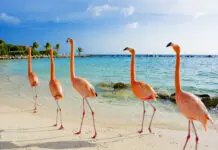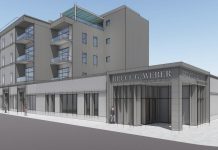
[dropcap]William[/dropcap] Duncan, a transplanted Scot, may have anticipated the real-estate mantra, “Location, location, location,” when he established a trading post at a key crossroads in 1879.
Duncan, the man, took advantage of the north-south Chisholm Trail and the east-west supply road between Forts Arbuckle and Sill. Duncan, the city, is taking advantage of this year’s sesquicentennial of the Chisholm Trail with numerous events.
 From 1867 to 1887, between Brownsville, Texas, and Abilene, Kansas, drovers herded 6 to 9 million cattle on the Chisholm Trail. Seizing another opportunity, William Duncan and his wife, Sally, a member of the Chickasaw tribe, claimed 500 acres of tribal land after they learned that Chicago, Rock Island and Pacific Railway would build a line.
From 1867 to 1887, between Brownsville, Texas, and Abilene, Kansas, drovers herded 6 to 9 million cattle on the Chisholm Trail. Seizing another opportunity, William Duncan and his wife, Sally, a member of the Chickasaw tribe, claimed 500 acres of tribal land after they learned that Chicago, Rock Island and Pacific Railway would build a line.
When that happened in 1892, Duncan officially incorporated, although the Duncans had founded the community’s post office eight years earlier.
The city has gone through economic ups and downs because of the oil/natural gas industry. For instance, the high school mascot in the booming early 20th century was the Oiler, but, during a bust in 1923, Duncan High School threw out that moniker. Someone suggested Demons and “school officials became smitten with that nickname,” athletic director Craig Benson says. (It won out over the Tanners, Scalpers and Panthers, the Duncan Banner reported in 1988.)
During another oil heyday, “the early 1980s, Duncan had more millionaires per capita than any other U.S. city,” says Loisdawn Jones, director of the Convention and Visitors Bureau, adding that Duncan, “one of the original Oklahoma Main Street cities, has a vibrant downtown with eclectic boutique shops and unique restaurants that foodies can find as a destination.”
Jones, too, stresses the importance of the historic cattle route. The Chisholm Trail Heritage Center is one of the 10 best Western museums in the country and has been recognized by the Oklahoma tourism industry numerous times with its Red Bud Award, most recently in 2016.
Stacy Cramer Moore, the center’s executive director, says July 22, the National Day of the Cowboy, will draw more than 1,000 people to its festivities, featuring singer Allen Wooten and his band, Cowboys at Heart, and discussions with Western children’s authors Kelly Poland and Stella Dutton.
The next day, the Michael Lesser Trio, out of New York City, will perform at 2:30 p.m. in the Simmons Center with songs about the old West, including some from the musical Oklahoma.

























